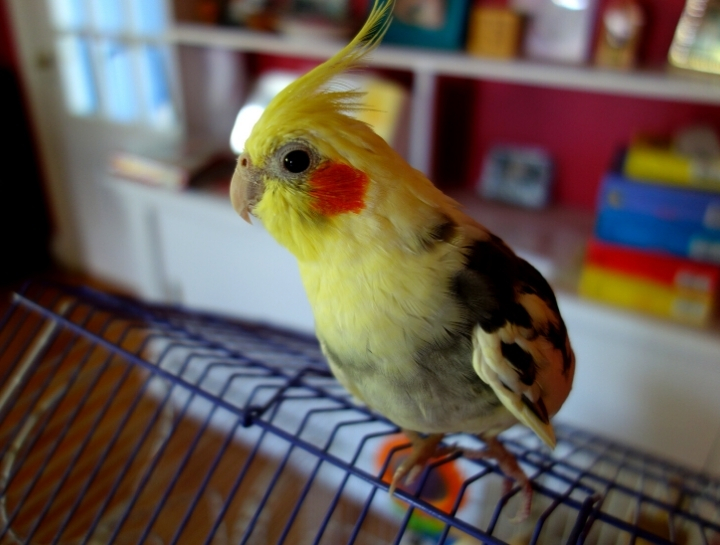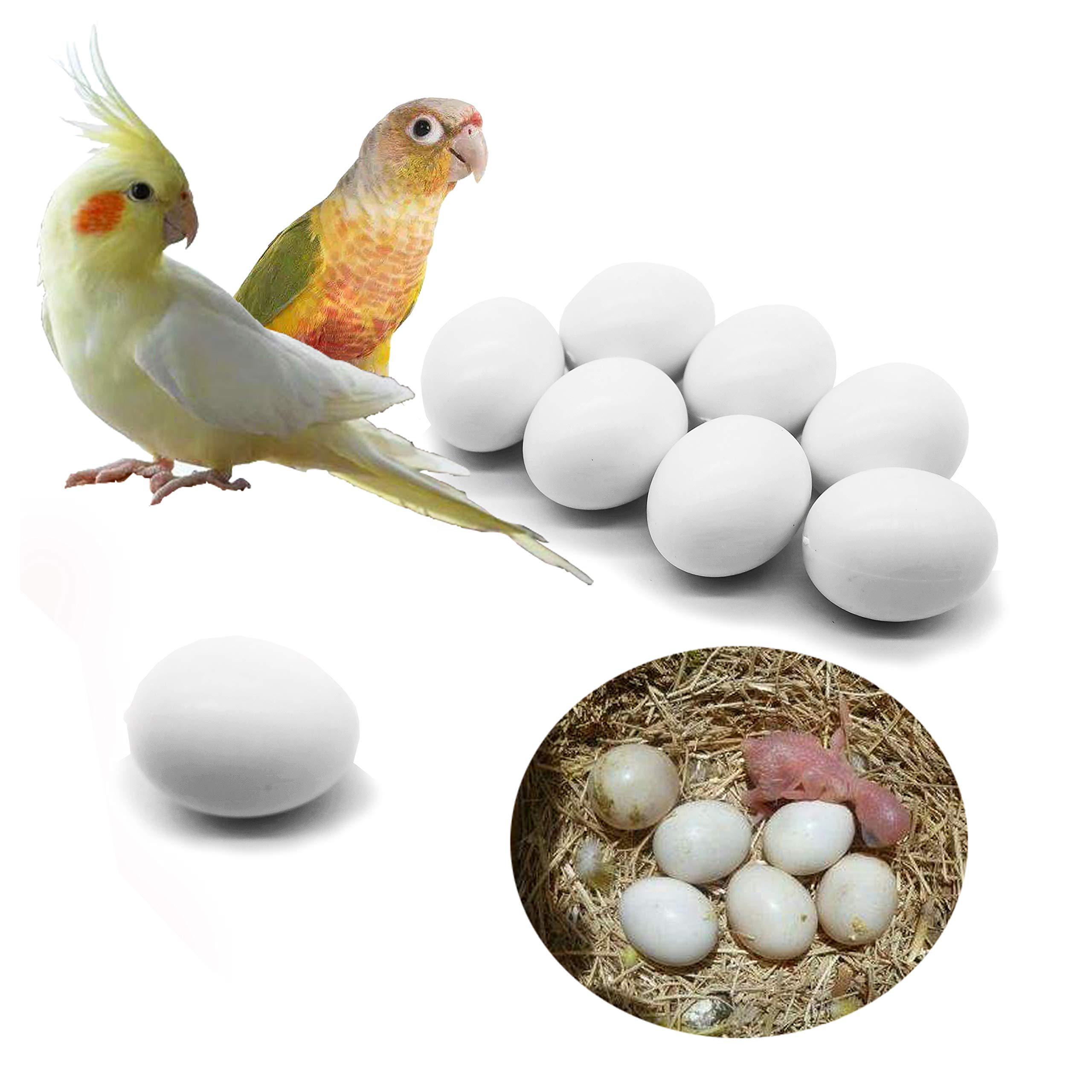Cockatiel eggs typically take about 18-21 days to hatch, depending on various factors such as temperature, humidity, and parental care. These factors play a crucial role in the development of the eggs, as they directly affect the incubation period.
Cockatiel owners must ensure that these factors are adequately maintained to increase the chance of a successful hatch. For example, the temperature should be kept between 99-100°f, while the humidity should be maintained at around 50-60%. Additionally, parental care, such as proper nesting and feeding, can also impact the hatching process.
By following these guidelines, cockatiel owners can look forward to the joy of new arrivals in their aviary.

Credit: www.animalhouseofchicago.com
The Normal Incubation Period For Cockatiel Eggs
Cockatiels are small and charming birds that are frequently bred as pets. If you own a pair of cockatiels, chances are they might lay eggs. You may be wondering how long it takes for the eggs to hatch and factors that can affect the incubation period.
In this blog post, we’ll talk about the normal incubation period for cockatiel eggs, variations in the incubation period, and factors that affect the incubation period.
The Typical Time For Egg Incubation
The average time for a cockatiel egg to hatch is about 18-21 days. During this period of time, the female cockatiel sits on the eggs to keep them warm, while the male brings her food and occasionally sits on the eggs to give her a break.
Variations In Incubation Period
The incubation period can vary between 16-25 days.
- Temperature: The ideal temperature for cockatiel eggs to hatch is between 98-100 degrees fahrenheit. If the temperature is too low or too high, it can increase or decrease the incubation period.
- Humidity: Cockatiel eggs need a certain level of humidity to hatch, and if it is too high or low, it can affect the incubation period.
- Genetics: Genetics also play a role in the incubation period of cockatiel eggs. Some cockatiels might have eggs that take longer or shorter to hatch.
Factors Affecting The Incubation Period
Various factors can affect the incubation period of cockatiel eggs.
- Age of the female: If the female cockatiel is too young or too old, it can affect the incubation period of the eggs.
- Nutrition: Proper nutrition is crucial for the health and development of the eggs. A nutrition-deficient diet can affect the incubation period of the eggs.
- Environmental conditions: The environment where the bird lives can affect the incubation period. If the bird is exposed to high levels of stress or noise pollution, it can affect the eggs’ development.
- Breeding conditions: The breeding conditions, including the availability of nesting materials and space, can influence the incubation period of the eggs.
The typical time for cockatiel eggs to hatch is about 18-21 days, while the incubation period can vary between 16-25 days. Many factors can affect the incubation period, including temperature, humidity, genetics, age of the female, nutrition, environmental conditions, and breeding conditions.
By understanding these factors, you can help ensure the proper development and hatching of your cockatiel’s eggs.
Predicting The Hatch Date Of Cockatiel Eggs
Cockatiels are known for their affectionate demeanor and captivating beauty. If you own a pair and they have been mating for some time, you might be expecting to see some little hatchlings soon. However, how long does it really take for cockatiel eggs to hatch?
In this blog post, we will decipher the factors that matter in determining the hatch date of cockatiel eggs. In particular, we will focus on the methods used to predict the hatch date of these eggs.
Methods For Predicting The Egg Hatch Date
Most cockatiel breeders want to know the exact date the eggs will hatch. Predicting the exact hatch date can be difficult, but there are some methods that can help give you a rough estimate.
- Counting the days: The average duration of incubation for cockatiel eggs is 18 to 21 days. Counting the days from the time the first egg was laid will give you a rough idea of when to expect the hatchlings. However, it’s important to note that not all eggs hatch on the same day.
- Candling the eggs: This involves shining a bright light through the shells of the eggs to determine the development stage. Candling helps to identify eggs that are not fertile or have stopped developing. You can expect your cockatiel eggs to hatch after 5 to 15 days after candling, which is typically between day 23 to day 26 of incubation.
- Measuring the egg weight loss: As incubation progresses, eggs lose weight as moisture is lost through the shell. Measuring the weight loss of the egg over time can help predict the hatch date of the egg. After day 10 of incubation, the eggs should lose about 13-15% of their weight. Then, the weight loss should slow down to approximately 10-12% by day 18. The majority of eggs will hatch at day 21.
Understanding The Limitations Of These Methods
Each of the methods above has limitations that can make it difficult to predict the exact hatch date.
- Counting the days from the date of the first lay will only give you a rough estimate of the hatch date.
- Candling the eggs is not very reliable for the first few days after the egg is laid. There is a chance of disturbing the developing embryo by shining a bright light on the egg.
- Measuring the egg weight loss is not very suitable for amateurs. It requires a precise measurement tool for weighing each egg at different steps of incubation.
The exact hatch date for cockatiel eggs can be difficult to predict. However, using the methods above, you can at least have a rough idea of when to expect the hatchlings. Make sure to take into account the limitations of these methods to avoid any disappointment.
Happy breeding!
Interference With The Egg Hatching Process
Importance Of Leaving The Eggs Untouched During The Incubation Period
When breeding cockatiels, it’s crucial to realize that the incubation period for eggs is essential for their survival. As the eggs begin to develop, any interference can put their development in danger.
- Cockatiel eggs require consistent heat and attention, and interrupting or touching them can cause your cockatiel to abandon the eggs entirely.
- Cockatiels are highly protective of their eggs and can be aggressive if they feel they are being threatened, which could lead to injury or death of the egg.
- Any small movements during the incubation period could result in the baby bird inside getting hurt or injured.
So if you’re hoping to hatch some healthy cockatiel chicks, it’s crucial to ensure you are providing the right environment for them to develop naturally without any interference.
Common Mistakes To Avoid
Many new bird breeders make mistakes when trying to help their birds’ hatching process by interfering, falling under the impression that they are ‘improving’ the hatching process.
- Touching or moving the eggs during incubation, which could lead to the embryo getting damaged or killed.
- Trusting hearsay that you need to rotate the eggs, which is often not required and can be detrimental to the egg health.
- Attempting to candle the eggs too often, or at the wrong time, can also disrupt the incubation process.
- Constantly checking on the eggs, which can cause stress for the birds and potentially cause them to stop caring for the eggs altogether.
Effects Of Interference On The Hatching Timeline
Interfering with the hatching process can cause significant delays in the eggs’ development timeline, leading to unsuccessful hatching and loss of the egg.
- If the eggs get damaged, bruised, or have ruptured during incubation, they may stop developing entirely.
- If you handle or touch the egg too much, the egg can become infected with harmful bacteria, which can affect the developing embryo.
- When the bird senses a threat, it can delay the incubation period altogether or eventually stop caring for the egg.
While breeding a cockatiel can be rewarding, it’s essential to understand the importance of leaving the egg to develop during the incubation period, and avoid interference or unnecessary movement. This will give the developing embryo the best chance to hatch successfully and lead to healthy chip formation.
Factors Affecting The Health And Viability Of Cockatiel Chicks
Cockatiels are fascinating birds that make excellent pets due to their playful personalities and easy-to-care-for nature. If you’re breeding these delightful birds, you’ll want to understand how long it takes for their eggs to hatch and what factors affect the health and viability of the chicks.
In this blog post, we’ll explore the factors that impact the development of cockatiel chicks, with a focus on environmental factors that affect their overall health and wellbeing.
The Role Of Environmental Factors On Chick’S Health
The environment in which cockatiel chicks develop plays a crucial role in their overall health and viability.
- Temperature: Cockatiel eggs should be kept at a consistent temperature of around 99. 3°f (37. 4°c) for optimal development. Once the chicks hatch, they should be kept in a warm, draft-free space to avoid illness and ensure optimal growth.
- Humidity: The humidity level in the incubator should be between 50-60% during the incubation period. After hatching, you should maintain a humidity level of around 70% by regularly misting the chicks with warm water.
- Lighting: A consistent and appropriate lighting schedule is necessary for the chicks to develop correctly. A light cycle of 12-14 hours of light per day is optimal, with the remaining hours being dark to promote healthy sleeping patterns.
- Noise: Loud or sudden noises can stress the chicks, so it’s essential to keep them in a quiet and calm environment to support their overall wellbeing.
The Importance Of Monitoring The Chick’S Behavior And Development
Monitoring the behavior and development of the chicks is essential to ensure that they’re growing and developing correctly.
- Feeding: Monitor feeding habits and ensure they’re getting enough food and water. Provide a high-quality, balanced diet and clean, fresh water daily.
- Behavior: Observe the chicks regularly to ensure they’re active, alert, and responsive. Any signs of lethargy, weakness, or unresponsiveness may suggest a health issue that requires intervention.
- Growth: Monitor the chicks’ weight daily to ensure they’re gaining weight appropriately. Poor growth or lack of weight gain could suggest a health issue or perhaps inadequate feeding.
Breeding and raising healthy cockatiel chicks is an incredibly rewarding experience. By considering the environmental factors and monitoring the chicks’ behavior and development, you can set them up for a healthy, happy life and ensure your success as a cockatiel breeder.
Frequently Asked Questions For How Long Does It Really Take For Cockatiel Eggs To Hatch? Factors That Matters
How Long Does It Take For A Cockatiel Egg To Hatch?
Cockatiel eggs take about 18 to 21 days to hatch once they’re incubated at the right temperature.
What Is The Ideal Incubation Temperature For Cockatiel Eggs?
The ideal incubation temperature for cockatiel eggs is between 99. 3°f and 100°f.
What Are The Factors That Can Affect Cockatiel Egg Hatching?
Factors like temperature, humidity, the health of parents, and the diet of the parents can affect cockatiel egg hatching.
How Can I Ensure That Cockatiel Eggs Will Hatch Successfully?
To ensure successful hatching, it’s important to have a proper setup for incubation with the right temperature and humidity levels.
When Should I Be Concerned If The Cockatiel Eggs Haven’T Hatched Yet?
If the eggs haven’t hatched after 25 days, it is advised to consult an avian veterinarian for help.
Conclusion
After learning about the factors that impact the hatch-time of cockatiel eggs, we can conclude that there is no universally applicable timeline for its incubation. The time span may vary due to various factors such as temperature, humidity, genetics, and behavioral patterns.
It is essential to consider all the necessary conditions before setting the eggs for incubation. As soon as the eggs hatch, it is crucial to provide enough care for the newborns to ensure their survival. Timely feeding, cleaning and maintaining a suitable environment are significant responsibilities that should not be ignored.
While waiting for the eggs to hatch, patience is essential. Rushing the process could result in unsuccessful hatching and lead to chick mortality. Breeding cockatiels can be an exciting activity for pet lovers, but one has to understand the responsibility that comes with it.
By providing a conducive environment, it is possible to assist in successful hatchings and keep the offspring alive.
Latest Posts
The Ultimate List: Top 8 Best Birdwatching Podcasts for Avid Birders
Looking for the top birdwatching podcasts? Here are the eight best options to tune into today! Birdwatching can be a thrilling, immersive experience that brings...
Stop Squirrels in Their Tracks: 10 Effective Ways to Safeguard Your Bird Feeder Pole
To prevent squirrels from climbing your bird feeder pole, use squirrel baffles and slippery poles. Here are ten effective ways to keep squirrels from stealing bird food and damaging bird feeders. ...


